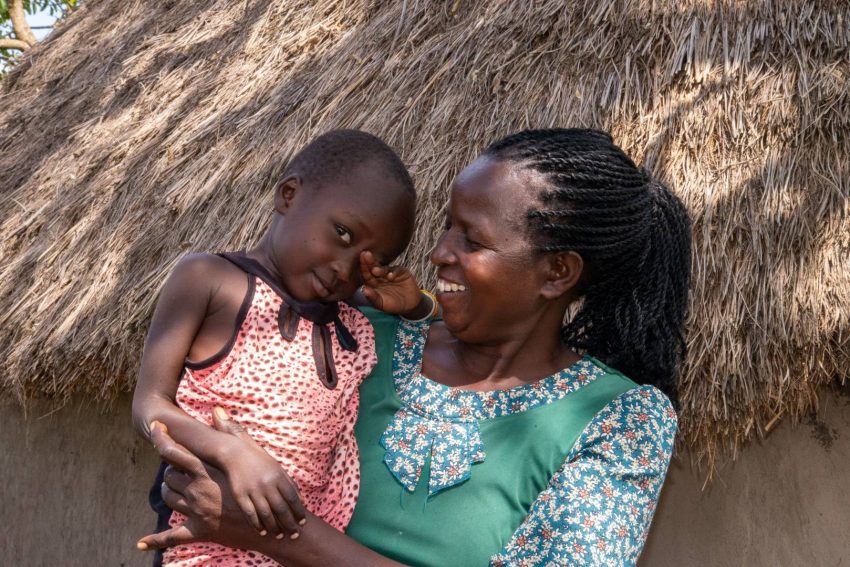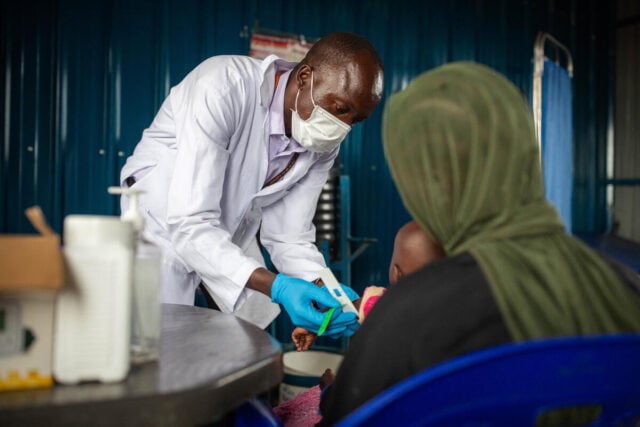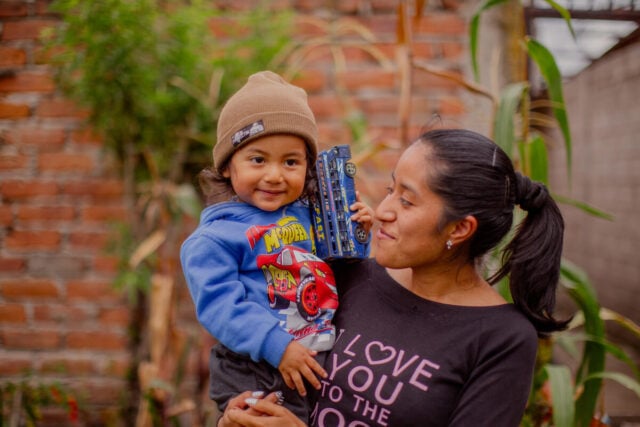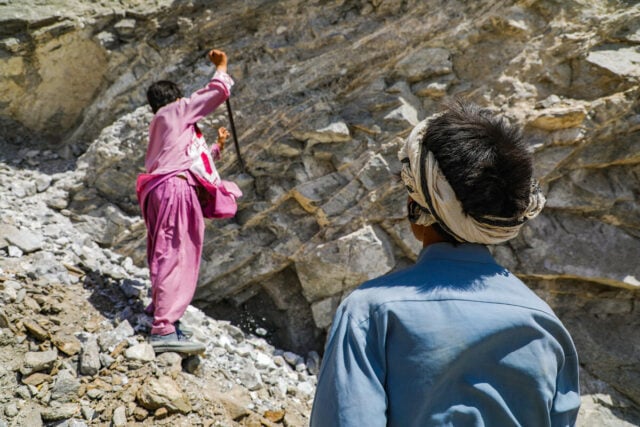Akanya gently laid her hand on her granddaughter’s forehead. It felt hot — too hot. Three-year-old Delilah definitely had a fever.
“I reluctantly thought it was temporary and controllable by cooling with a damp cloth,” Akanya says.
Akanya cares for Delilah and four other grandchildren. The family lives in a rural part of eastern Uganda, a country that annually experiences 42.1 deaths per 1,000 children under the age of 5, according to UNICEF. By comparison, the U.S. sees only 6.2 deaths per 1,000 children under 5. Many of those deaths in Uganda are due to lacking access to basic healthcare because clinics are often far away, and people lack money and transportation to get there.
A race against time
The cool cloth didn’t help. Delilah then lost her appetite and began having difficulties breathing. Akanya’s family doesn’t live near a local health center, but seeing her granddaughter getting worse, she knew she needed to do something. Panicked, she thought giving the child some acetaminophen tablets she had at home would help.
“I was very worried,” she says.
After two days, none of Akanya’s efforts had helped Delilah improve. She knew she needed outside help, so she turned to Dorah Nankya, a World Vision–trained community health worker (CHW). In early 2020, Dorah had visited homes in the community and registered families to be supported with health interventions. She and other CHWs targeted households with children under age 5. Their services are free, so they don’t add a financial burden on families who may already be struggling.
Shortly after dark, Akanya showed up at Dorah’s home with Delilah asking for help. “I didn’t expect to receive a patient, but I knew this was my calling,” Dorah says.
The road to recovery
Dorah quickly ran a rapid diagnostic test on Delilah, and the results showed that she had malaria. According to the World Health Organization, malaria is the leading cause of death in Uganda. Children are among the most vulnerable to the disease. Dorah gave Delilah anti-malarial medicine and instructed Akanya on how to properly continue the treatment at home. She also recommended the kinds of foods to feed her and advised that she needed a lot of fluids.
After two days, Akanya could feel Delilah’s fever reducing, and she saw her granddaughter had the strength to lift herself up and walk without being carried. “When she uttered out of the blue that she wanted to eat porridge, her favorite food, I definitely knew my grandchild’s appetite had returned,” Akanya says with a laugh.
On the third day, Dorah visited to check in and see how Delilah was recovering and was delighted to see her progress. She says, “I feel so proud when I treat a child and see them recover, and I’m really glad that World Vision brought this system into place.”
Preventative measures
Dorah also took the opportunity to share with Akanya how she can prevent her grandchildren from getting malaria in the future. “This area is also surrounded by many swamps, and this has helped mosquitos breed and spread all over the community,” Dorah says. “It gets worse during rainy seasons.” She explained how sleeping under a bed net will help protect the family against mosquito bites that could lead to malaria.
Not wanting to see her grandchildren suffer again, Akanya began using bed nets for their beds. She is thankful to be equipped with a potentially life-saving tool. She’s also relieved to have access to healthcare closer to home: “I’m grateful because health services are now closer to us,” she says. “This has helped me avoid expenses on transportation to [the] hospital in relation to the long distance involved.”
Dorah continued to visit the family to monitor other aspects of Delilah’s growth and development as well. The COVID-19 pandemic made her work even more important. As the virus spread, many families feared contracting COVID-19 if they sought medical help at health centers for other conditions. CHWs helped ensure that children and families still safely received care, were monitored for potential health issues, and received treatment for other life-threatening conditions, such as malaria, pneumonia, and diarrhea.
Kristy J. O’Hara-Glaspie of World Vision’s U.S. office contributed to this story.



